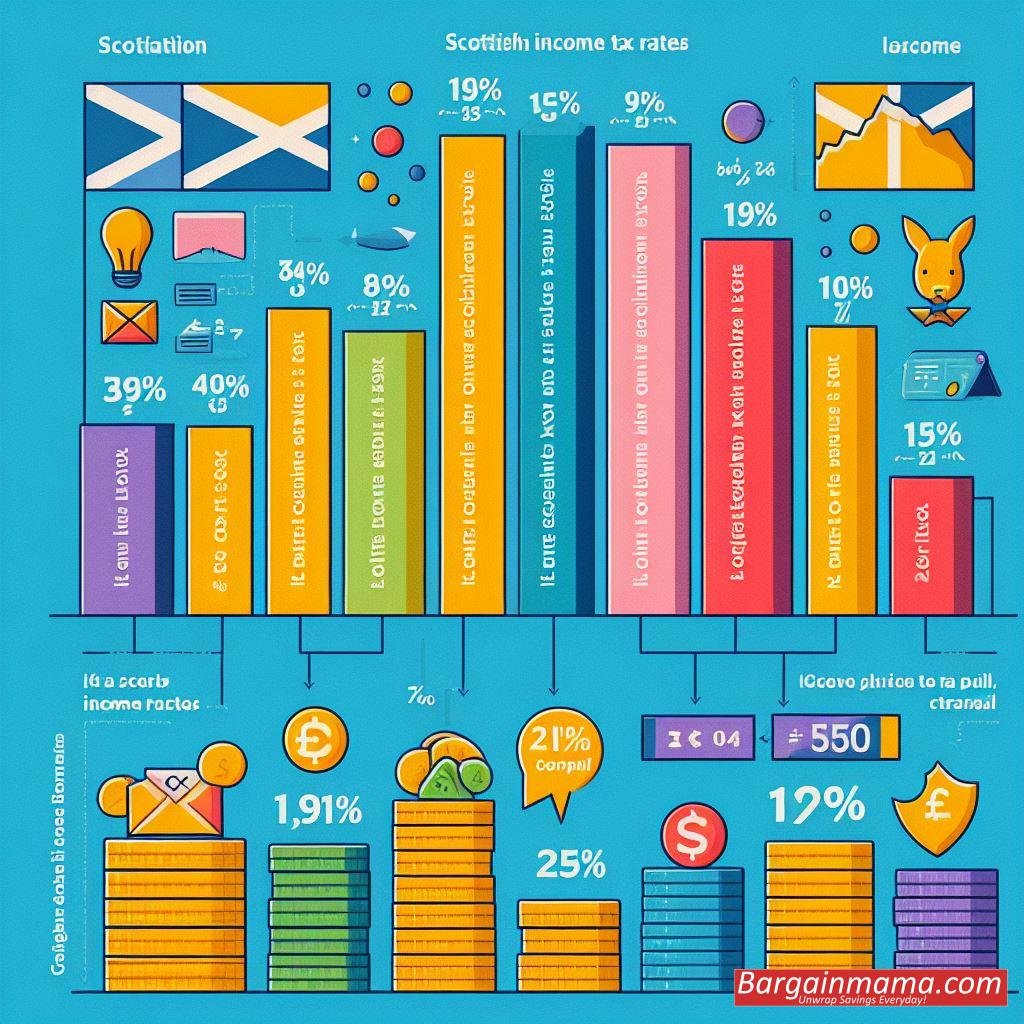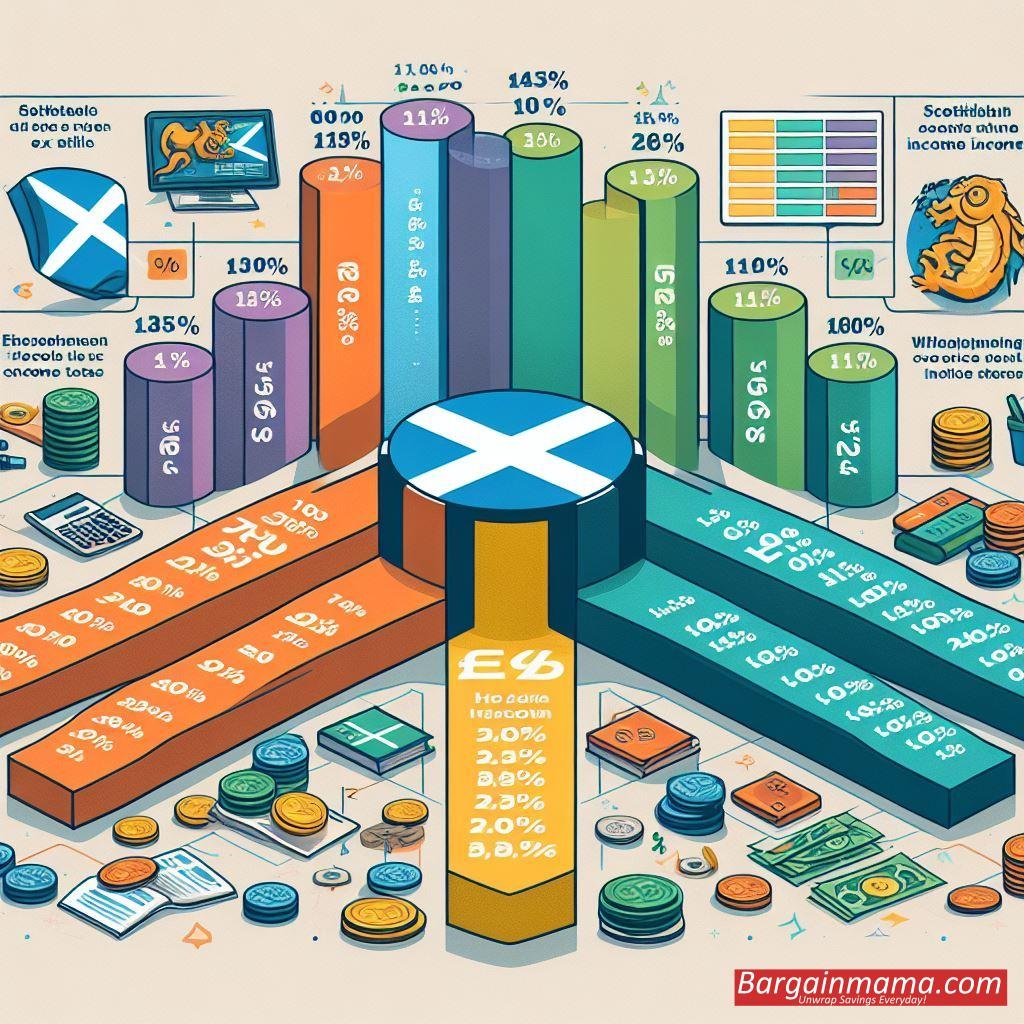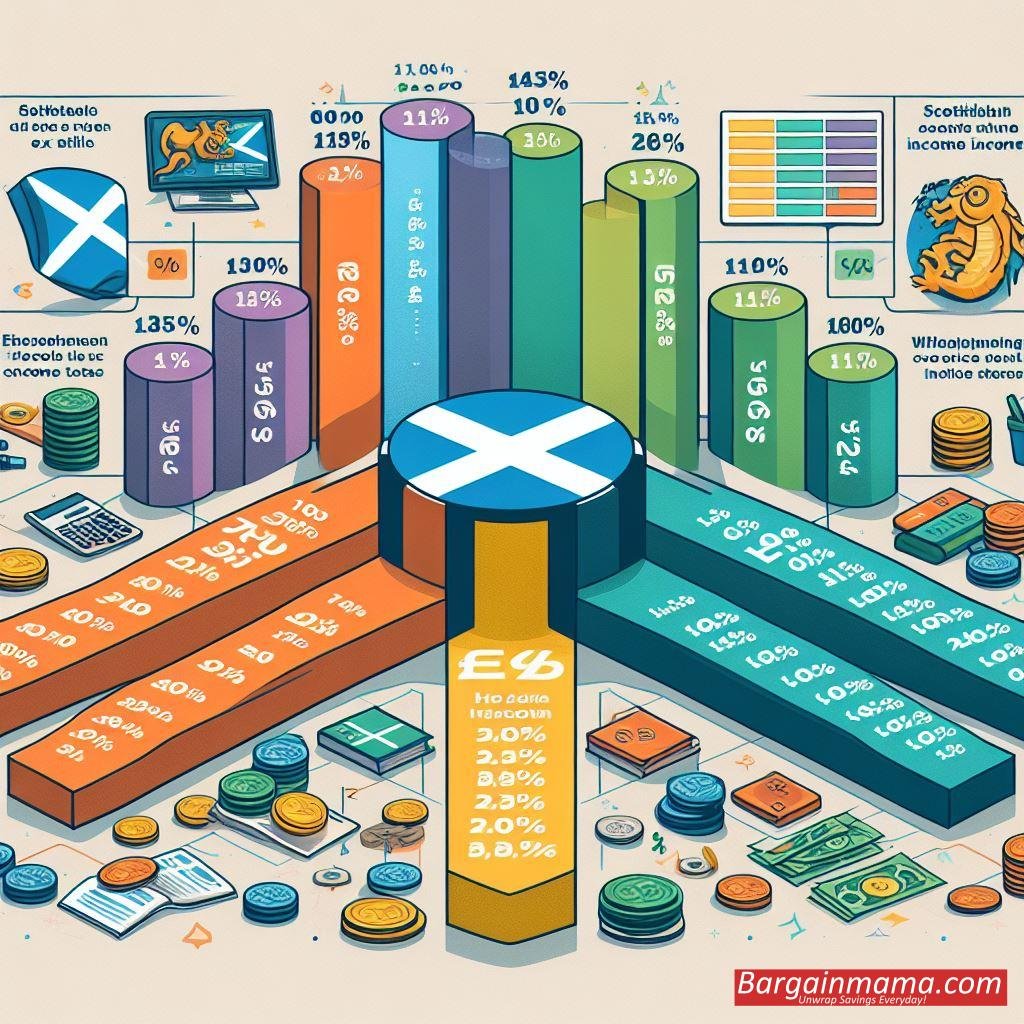Scotland’s income tax system has undergone substantial modifications, which sets it apart from the rest of the United Kingdom. With effect from this Saturday, there will be six tax bands in Scotland as opposed to three in England, Wales, and Northern Ireland. This is due to the introduction of a new “Advanced” income tax band for people making over £75,000.

Anybody making more than £28,867 in Scotland will pay more income tax under the new system than they would anywhere else in the United Kingdom. The majority of income taxpayers in Scotland, according to the Scottish government, will pay less tax than they would in other regions of the UK.
Concurrently, the UK government has lowered contributions for people earning between £12,571 and £50,270 due to National Insurance cuts. As a result, those with an average salary of £35,000 will pay the UK government about £800 less than they did the year before.
While acknowledging that higher earnings in Scotland would pay more tax, the Chartered Institute of Taxation considers that the UK-wide National Insurance adjustments have essentially mitigated these increases. Furthermore, compared to the previous tax year, Scots earning up to £112,900 are likely to have higher take-home pay because to the revised National Insurance rates.


With the most recent adjustments, there is now a new Scottish tax band of 45% for incomes between £75,000 and £125,140 in addition to a higher top tax rate for those who earn more than £125,140. Because of budgetary pressure, more people will be liable to higher tax rates as a result of the freeze on the higher rate threshold.
Eleven thousand people will now pay the new Advanced rate of 45%, while forty thousand people are anticipated to pay the maximum rate of 48% on earnings exceeding £125,140. In Scotland, more people are now paying higher tax rates as a result of this budgetary impact.
According to the Scottish Fiscal Commission, these adjustments will result in an additional £1.5 billion in tax revenue for Scotland in the upcoming year as compared to the case where UK income tax rates are maintained. On the other hand, detractors contend that increasing the tax disparity between Scotland and the UK could have a detrimental effect on people, economic development, and Scotland’s appeal as a location to live and work.




